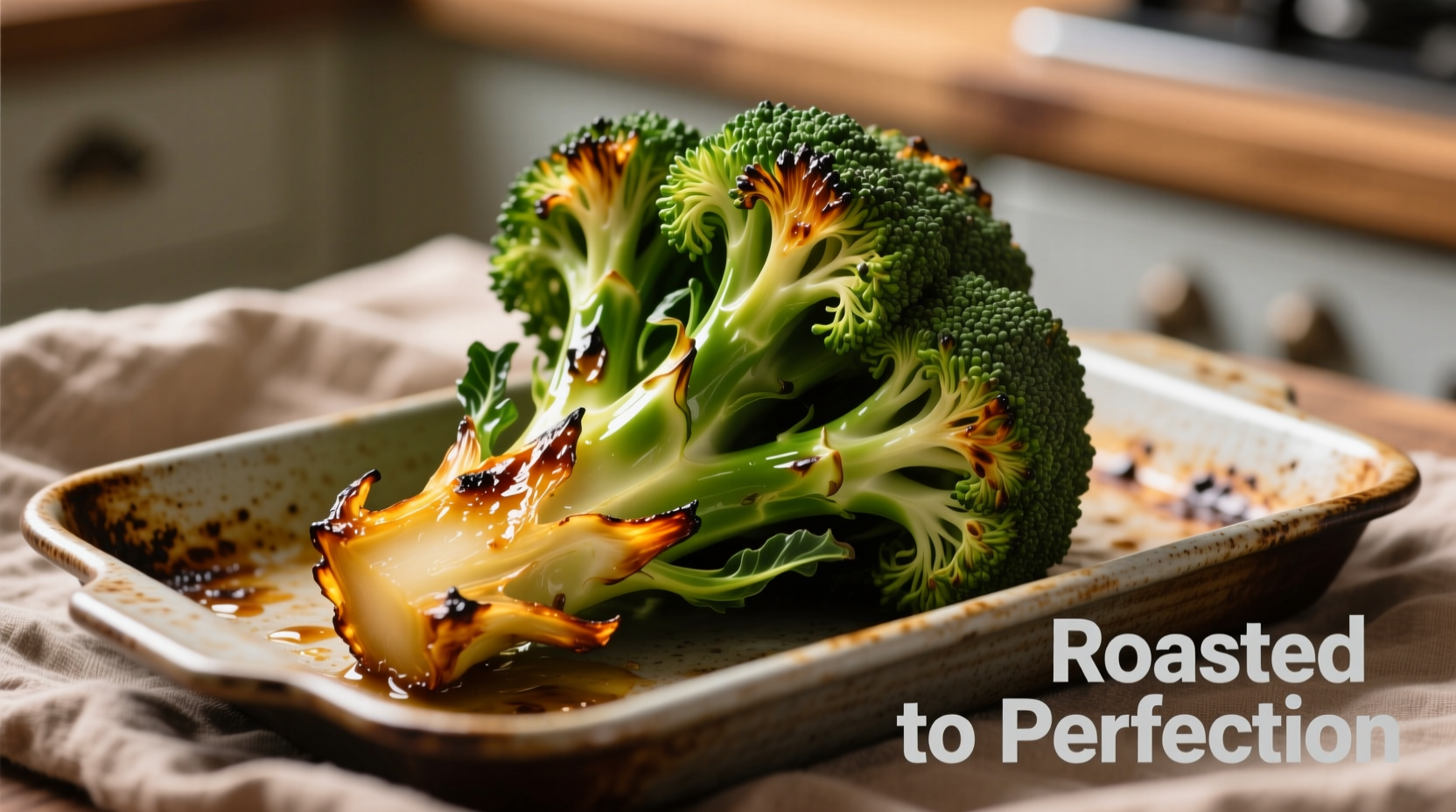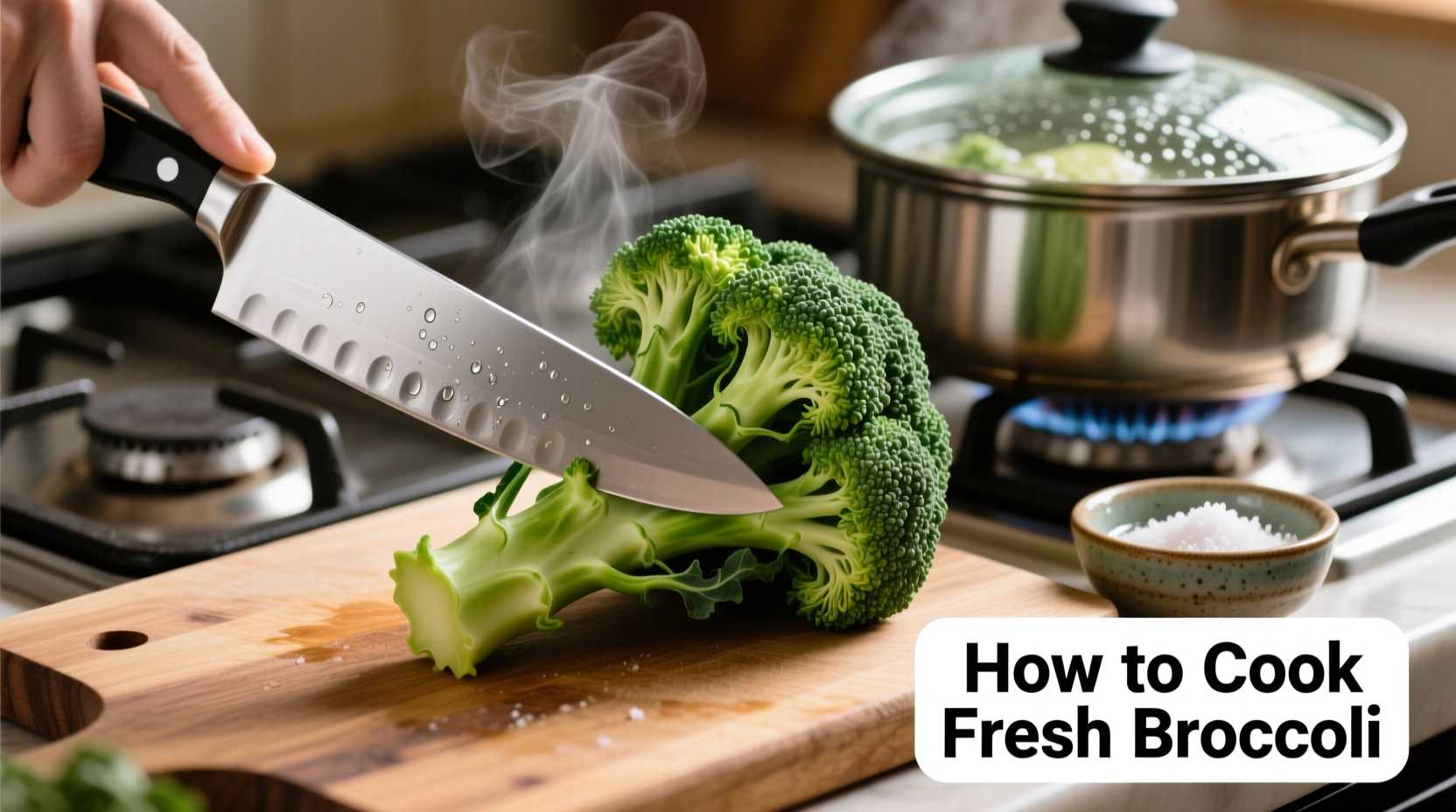Mastering Fresh Broccoli: Your Complete Cooking Guide
Broccoli isn't just another vegetable—it's a nutritional powerhouse that deserves proper preparation. Many home cooks struggle with soggy, bland, or unevenly cooked broccoli, but the right technique transforms this cruciferous vegetable into a dish you'll crave. Whether you're a beginner or looking to refine your skills, these professional methods ensure perfect broccoli every time.
Preparing Broccoli for Cooking Success
Before you even turn on the heat, proper preparation sets the stage for success. Start by selecting vibrant green florets with tight clusters and firm stalks. Avoid yellowing or flowering heads, which indicate age.
Washing Technique: Submerge broccoli in cold water for 2 minutes to dislodge hidden insects, then rinse under running water. Shake off excess moisture but don't pat dry completely—the remaining water aids steaming.
Cutting for Different Methods:
- Steaming: Cut into uniform 1.5-inch florets with 2-inch stalk pieces
- Roasting: Separate into smaller, bite-sized florets for even caramelization
- Sautéing: Slice stalks thinly on diagonal, cut florets into smaller pieces

Steaming: The Nutrient-Preserving Method
Steaming preserves up to 90% of broccoli's vitamin C compared to boiling, according to USDA research. This gentle cooking method maintains both nutrition and vibrant color.
Professional Steaming Technique:
- Bring 1 inch of water to boil in saucepan with steamer basket
- Add broccoli, cover immediately
- Steam 4 minutes for crisp-tender texture (6 minutes for softer)
- Immediately transfer to serving dish
For enhanced flavor, add lemon zest during the last minute of steaming or toss with toasted almonds after cooking. The University of California Davis Food Science Department confirms that brief steaming actually increases broccoli's antioxidant availability by breaking down cell walls.
Roasting: Unlocking Deep Flavor Complexity
Roasting transforms broccoli through the Maillard reaction, creating complex flavors that raw or boiled broccoli can't match. This method concentrates natural sugars while maintaining nutritional benefits.
Perfect Roasting Method:
- Preheat oven to 425°F (220°C)
- Toss florets with 1 tbsp olive oil, 1 minced garlic clove, salt, and pepper
- Spread in single layer on parchment-lined baking sheet
- Roast 20-25 minutes, flipping halfway through
- Finish with lemon juice and red pepper flakes
| Cooking Method | Time | Texture Result | Nutrient Retention |
|---|---|---|---|
| Steaming | 4-6 minutes | Crisp-tender | 90%+ vitamins preserved |
| Roasting | 20-25 minutes | Caramelized edges | 75-80% nutrients retained |
| Sautéing | 5-7 minutes | Firm with sear marks | 80-85% nutrients preserved |
| Microwaving | 3-5 minutes | Soft but even | 85%+ vitamins preserved |
Sautéing: Restaurant-Quality Results at Home
Sautéing delivers restaurant-quality broccoli with beautiful sear marks and complex flavor in minutes. The key is proper heat management and timing.
Perfect Sauté Technique:
- Heat 1 tbsp avocado oil in cast-iron skillet over medium-high heat
- Add broccoli stalks first (they take longer)
- After 2 minutes, add florets and 2 tbsp water
- Cover immediately to steam briefly
- Uncover and cook 3 more minutes until crisp-tender
- Finish with splash of tamari and sesame seeds
The FDA recommends cooking broccoli to an internal temperature of 160°F (71°C) for food safety, though this is typically achieved well before the vegetable reaches proper doneness. Always wash hands and surfaces after handling raw produce to prevent cross-contamination.
Microwave Method: Speed Without Sacrifice
Contrary to popular belief, microwaving can produce excellent broccoli when done correctly. This method preserves more water-soluble nutrients than boiling.
Optimal Microwave Technique:
- Place florets in microwave-safe dish with 2 tbsp water
- Cover tightly with vented plastic wrap
- Microwave on high for 3 minutes
- Let stand 1 minute (cooking continues)
- Check texture; microwave additional 30 seconds if needed
For best results, avoid overfilling the dish—broccoli should be in a single layer. Stir halfway through cooking for even results. This method preserves up to 95% of broccoli's vitamin C according to a Cornell University study on vegetable cooking methods.
Doneness Guide: Your Visual Reference
Knowing when broccoli is perfectly cooked separates good results from great ones. Use these visual indicators regardless of cooking method:
- Color: Bright green (dull green indicates overcooking)
- Texture: Florets should bend slightly when pressed but hold shape
- Stalks: Should pierce easily with fork but offer slight resistance
- Aroma: Sweet, nutty fragrance (sulfurous smell means overcooked)
Broccoli continues cooking after removal from heat, so always undercook slightly. For meal prep, stop cooking when broccoli is slightly underdone—it will reach perfect texture when reheated.
Nutritional Optimization Tips
Maximize broccoli's health benefits with these science-backed techniques:
- Add a small amount of healthy fat (olive oil, avocado) to increase absorption of fat-soluble vitamins
- Pair with mustard powder or radishes to boost sulforaphane production
- Cook briefly to preserve heat-sensitive vitamin C
- Save broccoli stalks for stocks—they contain valuable fiber
The American Journal of Clinical Nutrition reports that combining broccoli with foods containing myrosinase enzyme (like mustard seeds) can increase the bioavailability of sulforaphane, broccoli's most potent antioxidant, by up to 400%.
Troubleshooting Common Broccoli Problems
Soggy Broccoli: Usually from overcooking or improper draining. Solution: Shock in ice water after cooking or reduce cooking time by 1-2 minutes.
Bitter Taste: Often from overcooking or using older broccoli. Solution: Add small pinch of salt during cooking or finish with lemon juice.
Uneven Cooking: Results from inconsistent piece sizes. Solution: Separate florets from stalks initially, as stalks need longer cooking.
Yellowing: Indicates overcooking or age. Prevention: Cook until bright green, not olive green, and use fresh broccoli within 3-4 days of purchase.











 浙公网安备
33010002000092号
浙公网安备
33010002000092号 浙B2-20120091-4
浙B2-20120091-4